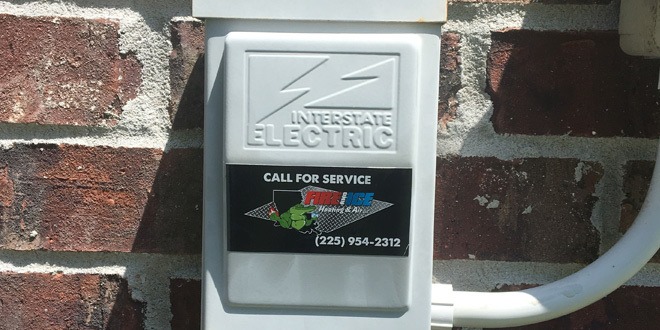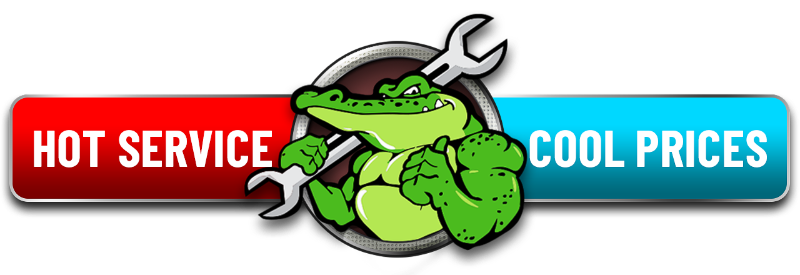Feeling the heat (or chill) of rising energy costs?
Keeping your commercial space at the perfect temperature is essential, but inefficient HVAC systems can quickly turn your energy bills into a financial burden. Mastering your energy consumption doesn’t have to be a complex process. In this Commercial HVAC Cost Control 101 guide, we’ll break down simple and effective strategies to optimize your HVAC system, save money, and create a more comfortable and sustainable environment. Let’s turn down the volume on your energy costs and crank up the efficiency of your commercial space!
Understanding Your Commercial HVAC Operating Costs
The first step towards mastering commercial HVAC cost control is gaining a comprehensive understanding of what constitutes these operating costs. Generally, HVAC operating expenses in commercial settings can be broken down into several key components: energy consumption, maintenance and repair, and capital costs for equipment replacement or upgrade. However, the lion’s share of these costs typically comes from energy consumption, making it a critical focus area for cost-saving measures.
Several factors influence HVAC operating costs, including:
- Energy Prices: Fluctuating energy prices can significantly impact your HVAC operating costs. Being aware of current rates and trends can help in planning and optimizing energy usage.
- System Efficiency: The efficiency of your commercial HVAC system plays a crucial role in determining operating costs. Older or poorly maintained systems tend to consume more energy to provide the same level of heating or cooling as newer, more efficient models.
- Maintenance Schedules: Regular maintenance is vital to keep your HVAC system running efficiently. Neglecting this can lead to increased energy consumption and higher operating costs.
- Building Insulation and Sealing: The quality of a building’s insulation and sealing affects the workload on commercial HVAC systems. Better insulation means less energy is needed to maintain comfortable temperatures.
- Usage Patterns: How and when your commercial HVAC unit is used can also affect operating costs. Optimizing operating times can lead to significant savings.
To begin controlling these costs, it’s essential to conduct a thorough assessment of your current HVAC operating expenses. This involves reviewing energy bills, maintenance records, and any available system data to establish a baseline. Understanding where your money is going is the first step toward implementing strategies that can significantly reduce these costs.
Commercial HVAC System Cost Saving Strategies
Reducing energy consumption is pivotal in controlling commercial HVAC operating costs. Implementing strategic measures can lead to significant savings, enhance system efficiency, and contribute to environmental sustainability. Here are some effective strategies:
Regular Maintenance and Servicing
Routine maintenance is the cornerstone of efficient HVAC operation. Ensuring that your system is regularly checked and serviced can prevent minor issues from escalating into major problems, thus avoiding unexpected breakdowns and costly repairs. Tasks such as cleaning air filters, checking refrigerant levels, and inspecting ductwork for leaks can significantly improve system efficiency and reduce energy consumption.
Smart Thermostats and Automation
Leveraging technology can lead to substantial energy savings. Smart thermostats and automation systems allow for precise control over heating, cooling, and ventilation, adapting in real-time to the needs of the space. These systems can adjust temperatures based on occupancy, time of day, and even weather conditions, ensuring that energy is not wasted heating or cooling unoccupied spaces.
Optimize System Settings
Tailoring your HVAC system’s settings to match seasonal changes and occupancy levels can drastically reduce energy usage. For example, adjusting temperature settings during off-hours or when the building is less occupied can result in significant savings. Implementing zoning within your building can also help by allowing different areas to be heated or cooled based on use and preference, avoiding unnecessary energy expenditure in rarely used spaces.
Energy-Efficient Lighting and Equipment
While not directly part of the HVAC system, the heat produced by lighting and equipment affects indoor temperatures. Switching to energy-efficient lighting and equipment can reduce the heat load on your HVAC system, thereby lowering energy consumption. LED lighting, in particular, produces less heat and uses less energy than traditional lighting solutions.
Insulation and Sealing
Enhancing your building’s insulation and sealing can have a dramatic impact on your HVAC system’s efficiency. Properly insulated walls and ceilings, along with sealed windows and doors, can keep conditioned air inside and reduce the workload on your HVAC system, leading to lower energy consumption.
Implementing these strategies requires an initial investment of time and resources, but the return on investment can be substantial in terms of reduced operating costs and improved system performance. In the next section, we’ll discuss the importance of investing in energy-efficient HVAC systems and how this can be a game-changer for controlling your commercial HVAC operating costs.
Investing in Energy-Efficient HVAC Systems
Investing in energy-efficient HVAC systems represents a proactive approach to controlling commercial HVAC operating costs. Modern, high-efficiency systems are designed to provide optimal comfort while consuming less energy than older, less efficient models. This section explores the benefits of energy-efficient HVAC technologies and how they can significantly impact your operating costs.
Long-term Cost Savings
The most compelling argument for investing in energy-efficient heating and cooling systems is the potential for substantial long-term cost savings. Systems with a high seasonal energy efficiency ratio (SEER) use advanced technology to minimize energy consumption without compromising performance. Although the initial investment may be higher, the reduction in monthly energy bills can lead to significant savings over the lifespan of the system.
Enhanced System Performance
Energy-efficient HVAC systems not only reduce energy consumption but also offer improved performance. Features like variable speed motors, advanced air filtration, and precise temperature control contribute to a more comfortable and healthier indoor environment. These systems are also often quieter, adding to the comfort of your commercial space.
Environmental Impact
By reducing energy consumption, energy-efficient HVAC systems contribute to lower carbon emissions. For businesses committed to sustainability, upgrading to an energy-efficient system aligns with environmental goals and can enhance your company’s image as a responsible community member.
Available Incentives
Many utility companies and governments offer incentives for businesses that invest in energy efficiency, including rebates and tax credits for installing energy-efficient HVAC units. These incentives can help offset the initial cost of upgrading and should be considered when evaluating the overall investment.
Choosing the Right System
Selecting the right energy-efficient HVAC system for your commercial space is crucial. Factors to consider include the size of your building, occupancy patterns, and specific heating and cooling needs. Working with HVAC professionals can ensure that you invest in a system that matches your requirements, maximizing efficiency and cost savings.
Financing Options for HVAC Upgrades
Understanding that the upfront cost of upgrading to an energy-efficient HVAC system can be a significant barrier for many businesses, we at Fire and Ice Heating & Air offer flexible financing options to ease this burden. These options are designed to make HVAC upgrades more accessible, allowing businesses to enjoy the benefits of a more efficient system without the immediate financial stress.
Making Upgrades Accessible
Our financing options are tailored to meet the diverse financial situations of our clients. We believe that every business, regardless of size, should have access to the energy savings and enhanced comfort that come with a modern HVAC system. By spreading the cost over time, businesses can manage their cash flow more effectively, making the upgrade process less daunting financially.
Benefits of Financing
Opting for financing offers several benefits, including:
- Immediate Energy Savings: With financing, businesses can upgrade their systems immediately and start enjoying the cost savings from reduced energy consumption. These savings can then contribute towards the financing payments, making the investment even more manageable.
- Preservation of Capital: Financing allows businesses to preserve their capital for other investments or operational needs. Instead of allocating a large sum upfront for an HVAC upgrade, businesses can maintain liquidity and financial flexibility.
- Flexible Payment Options: We offer a variety of payment plans to fit different budgets and preferences. Our goal is to make the payment process as convenient as possible for our clients.
- Taking Advantage of Special Offers: We periodically offer special financing deals that provide additional savings or favorable terms. Keeping an eye out for these offers can make upgrading your HVAC system even more attractive.
Consultation and Assistance
Our team is here to help you navigate the financing process. We’ll work with you to understand your financial situation and recommend the best financing option to meet your needs. Additionally, we can assist in identifying any available rebates or incentives that could further reduce your costs.
Take Control of Your HVAC Costs Today!
Ready to optimize your energy consumption and slash your HVAC operating costs? Fire and Ice Heating & Air is here to guide you through every step, from commercial HVAC installation services to tailored maintenance plans. ? Embrace efficiency and savings—reach out now and let us transform how your business feels about comfort and cost! ??



